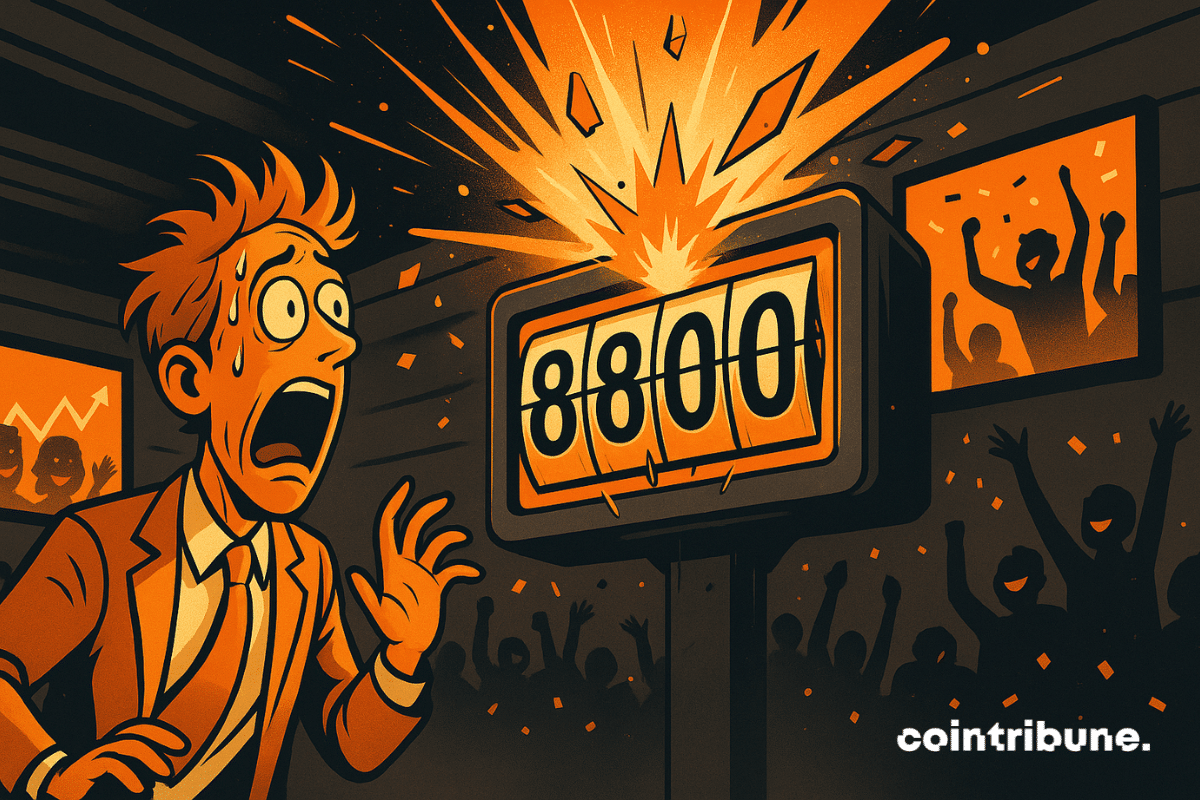Shocking Move: Grant Cardone Leads Massive JPMorgan Boycott Over Strategy Crisis

BitcoinWorld
Shocking Move: Grant Cardone Leads Massive JPMorgan Boycott Over Strategy Crisis
In a stunning development that’s shaking the financial world, prominent real estate investor Grant Cardone has declared war on banking giant JPMorgan Chase. The Grant Cardone JPMorgan boycott represents a dramatic stand against what many in the crypto community see as institutional attacks on emerging financial technologies. This bold move comes after JPMorgan issued warnings about potential massive outflows from Strategy, triggering a chain reaction across markets.
Why Is Grant Cardone Leading This JPMorgan Boycott?
The Grant Cardone JPMorgan boycott began when the banking behemoth published a report predicting Strategy could face up to $2.8 billion in outflows if removed from the MSCI index. Cardone responded immediately by closing his JPMorgan accounts and transferring his funds to Wells Fargo. Moreover, he publicly urged concerned investors to stop using Chase credit cards, calling for collective action against what he perceives as anti-competitive behavior.
This dramatic escalation highlights the growing tension between traditional financial institutions and the cryptocurrency sector. The banking giant’s warning caused Strategy’s stock price to plummet below $200, hitting a yearly low of around $170 last Friday. Consequently, crypto community members have rallied behind Cardone’s protest, describing the situation as a coordinated attack on innovation.
What Does This Boycott Mean for Investors?
The Grant Cardone JPMorgan boycott represents more than just one investor’s protest. It signals a fundamental shift in how successful investors view traditional banking relationships. Here are the key implications:
- Institutional credibility at stake – Major banks face growing scrutiny over their crypto positions
- Investor migration – High-net-worth individuals are reconsidering banking partnerships
- Market volatility – Banking reports can significantly impact crypto-related stocks
- Regulatory attention – Such public disputes often attract regulatory review
Furthermore, this situation demonstrates how quickly financial alliances can change in today’s digital economy. The speed at which Cardone moved his accounts underscores the fluid nature of modern banking relationships.
How Are Markets Reacting to This Banking Protest?
The immediate market reaction to the Grant Cardone JPMorgan boycott has been significant. Strategy’s stock experienced sharp declines, while other crypto-related assets showed increased volatility. However, the broader impact extends beyond price movements. This protest has sparked crucial conversations about:
- Banking transparency in crypto reporting
- Institutional influence on emerging technologies
- Investor protection in volatile markets
- The future of bank-crypto relationships
Market analysts are closely watching whether other prominent investors will join Cardone’s protest. The potential for a wider movement could reshape how traditional banks approach cryptocurrency analysis and reporting.
What Can We Learn From This Financial Standoff?
The Grant Cardone JPMorgan boycott teaches us several important lessons about modern finance. First, individual investors now have platforms to challenge institutional narratives. Second, the lines between traditional and digital finance continue to blur. Most importantly, this situation shows that financial credibility works both ways – institutions must maintain trust with their clients just as investors must trust their financial partners.
This protest also highlights the growing power of social proof in financial decisions. When respected investors like Cardone take public stands, they influence market sentiment and individual investment choices.
Frequently Asked Questions
Why did Grant Cardone start boycotting JPMorgan?
Cardone initiated the boycott after JPMorgan warned about potential massive outflows from Strategy, which he viewed as an unfair attack on the company and its investors.
How much money did Cardone move from JPMorgan?
While exact figures aren’t disclosed, Cardone confirmed he closed all his JPMorgan accounts and transferred his funds to Wells Fargo.
What impact did JPMorgan’s report have on Strategy’s stock?
The report caused Strategy’s stock price to fall sharply, dropping below $200 and hitting a yearly low of around $170.
Are other investors joining the boycott?
While Cardone has urged others to join, the full extent of participation remains unclear as the movement develops.
What does this mean for cryptocurrency investors?
This situation highlights ongoing tensions between traditional banks and crypto markets, suggesting investors should monitor institutional positions carefully.
Could this boycott affect other banking relationships?
Potentially yes, as it may encourage other investors to reconsider their banking partnerships based on institutional crypto positions.
Join the Conversation
This developing story represents a crucial moment in the relationship between traditional finance and cryptocurrency markets. Share this article with fellow investors and join the discussion about the future of banking and digital assets. Your voice matters in shaping how financial institutions approach emerging technologies.
To learn more about the latest cryptocurrency trends, explore our article on key developments shaping cryptocurrency institutional adoption.
This post Shocking Move: Grant Cardone Leads Massive JPMorgan Boycott Over Strategy Crisis first appeared on BitcoinWorld.
You May Also Like

Technical Setup Points To $88,640 BTC Target

Major Cryptocurrencies Brace for Significant Unlock Movements
